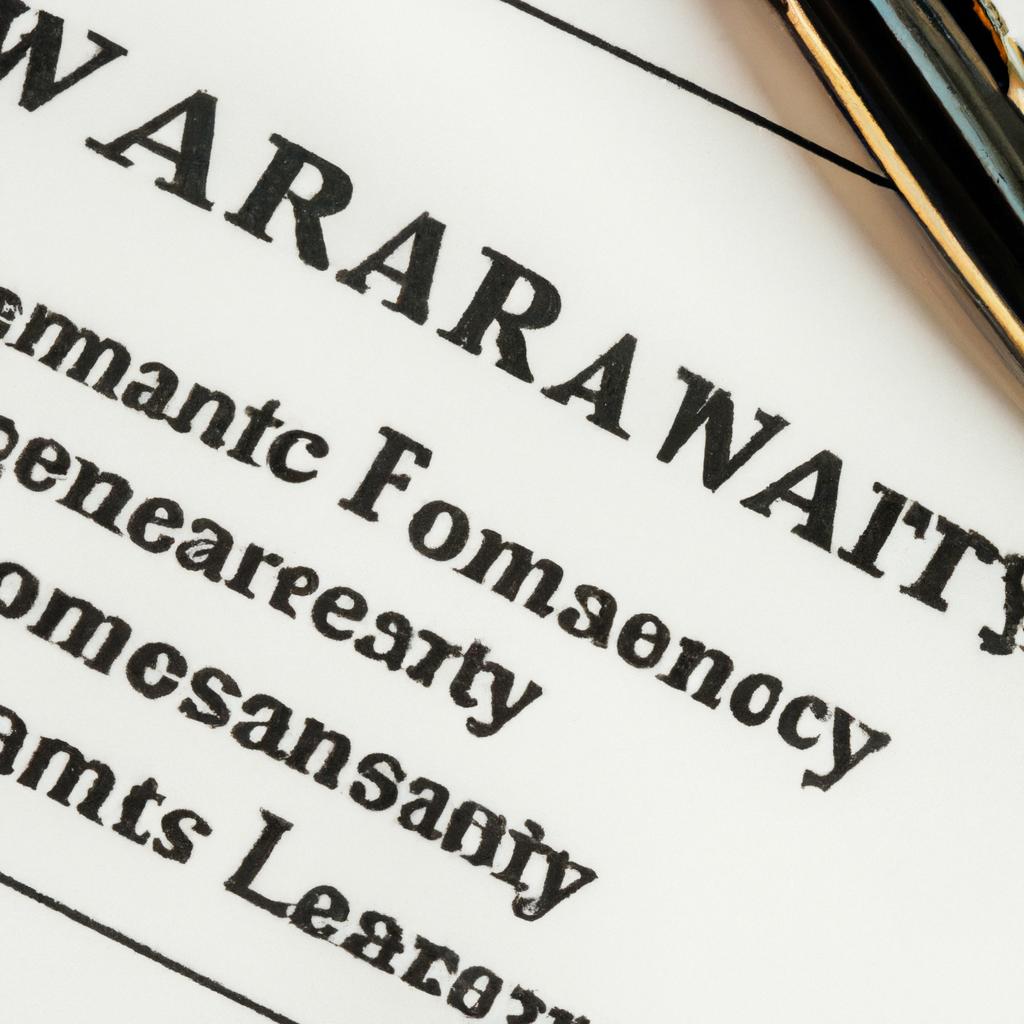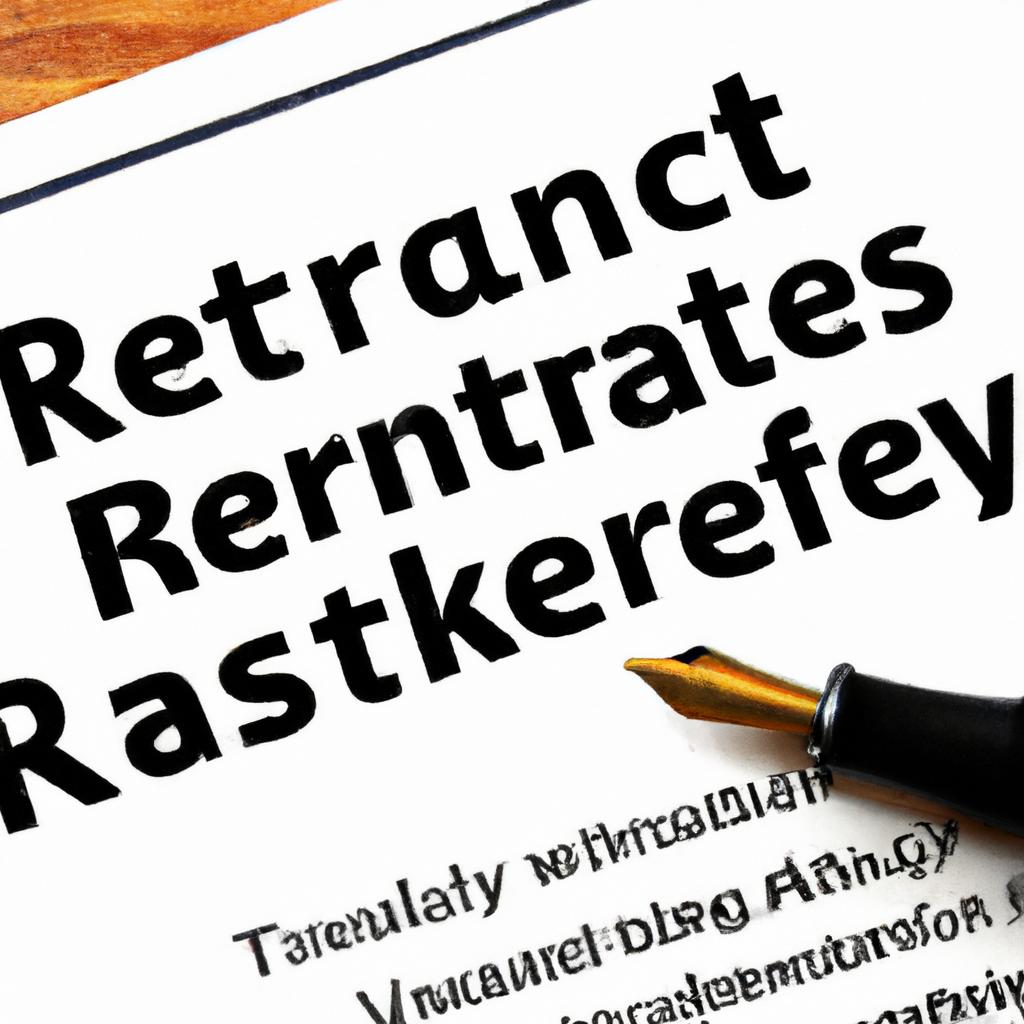In the intricate realm of real estate transactions, one essential document often holds significant weight – the warranty deed. As seasoned legal professionals at Morgan Legal Group in the bustling metropolis of New York City, we are well-versed in the nuances of this crucial instrument. Join us as we delve into the intricacies of what a warranty deed is in real estate and the critical role it plays in ensuring secure property ownership.
Understanding the Purpose of a Warranty Deed in Real Estate Transactions
When engaging in real estate transactions, it is crucial to understand the purpose of a warranty deed. A warranty deed is a legal document that guarantees the seller holds clear title to the property and has the right to sell it. This deed also provides certain promises or warranties to the buyer, ensuring that the seller will defend the buyer against any claims to the property’s title.
A warranty deed offers several key advantages in real estate transactions, including:
- Protection: The buyer is protected against any future claims on the property.
- Clear Title: The buyer receives assurance that the seller has the legal right to sell the property.
- Peace of Mind: Both parties can have confidence in the transaction knowing that the property’s title is clear and free from any encumbrances.

Key Components of a Warranty Deed and Their Legal Implications
When it comes to real estate transactions, understanding the key components of a warranty deed is crucial. A warranty deed is a legal document that guarantees the buyer that the seller owns the property free and clear and has the right to sell it. There are several key components of a warranty deed that have significant legal implications for both parties involved:
- Grantor and Grantee: The grantor is the seller who transfers the property, while the grantee is the buyer who receives the property.
- Legal Description: This section describes the property being transferred in detail, including boundaries, dimensions, and any easements.
- Covenants: These are promises made by the grantor to protect the grantee’s ownership rights, such as the covenant of seisin, covenant of quiet enjoyment, and covenant against encumbrances.

Potential Risks Associated with Warranty Deeds and How to Mitigate Them
When dealing with real estate transactions, especially when it comes to warranty deeds, there are potential risks that need to be considered and mitigated properly. One of the main risks associated with warranty deeds is the possibility of undisclosed defects in the property. This could include issues such as liens, easements, or boundary disputes that may arise after the purchase is completed. To mitigate this risk, it is important to conduct a thorough title search and obtain title insurance to protect against any unforeseen claims.
Another potential risk with warranty deeds is the possibility of fraudulent behavior by the seller. In some cases, sellers may misrepresent the condition of the property or fail to disclose important information that could affect the buyer’s decision to purchase. To help mitigate this risk, it is crucial to work with experienced real estate agents and attorneys who can help review all the necessary documents and ensure that the transaction is conducted properly and legally.

Expert Recommendations for Ensuring a Secure Real Estate Transaction with a Warranty Deed
When it comes to ensuring a secure real estate transaction with a warranty deed, it is crucial to follow expert recommendations to protect yourself and your investment. A warranty deed is a legal document that guarantees the seller holds clear title to the property and has the right to sell it. It also provides assurances that the property is free from any encumbrances or defects in title. To ensure a smooth and secure real estate transaction with a warranty deed, it is essential to follow these expert recommendations:
- Perform a Title Search: Before signing a warranty deed, it is essential to conduct a thorough title search to ensure there are no existing liens, judgments, or other encumbrances on the property.
- Hire a Real Estate Attorney: Working with a knowledgeable real estate attorney can help you understand the terms of the warranty deed and ensure that all legal requirements are met during the transaction process.
- Obtain Title Insurance: Title insurance can provide an added layer of protection in case any issues with the title arise after the transaction is completed.
Q&A
Q: What is a warranty deed in real estate?
A: A warranty deed is a legal document that guarantees the seller of a property has the right to transfer ownership to the buyer free and clear of any claims or encumbrances.
Q: How is a warranty deed different from other types of deeds?
A: Unlike a quitclaim deed, which only transfers whatever interest the seller may have in the property, a warranty deed provides a full guarantee of ownership.
Q: What protections does a warranty deed offer to the buyer?
A: A warranty deed ensures that the seller has the legal right to transfer the property, that there are no undisclosed claims or liens on the property, and that the buyer will not face any legal challenges to their ownership.
Q: Are there different types of warranty deeds?
A: Yes, there are two main types of warranty deeds: general warranty deeds, which provide the broadest protection for the buyer, and special warranty deeds, which only guarantee against claims that may arise during the seller’s ownership of the property.
Q: How is a warranty deed different from title insurance?
A: While a warranty deed provides a guarantee of ownership at the time of sale, title insurance protects the buyer against any future defects in the title that may arise after the sale has been completed.
Future Outlook
In conclusion, understanding what a warranty deed is in real estate is essential for both buyers and sellers. It signifies a promise of ownership and protection against any unforeseen legal claims on the property. By having a clear understanding of this important legal document, you can navigate the real estate market with confidence and peace of mind. So, whether you’re buying your dream home or selling a property, be sure to always keep the warranty deed in mind. Happy house hunting!
 What Is a Warranty Deed in Real Estate: Understanding the Basics
What Is a Warranty Deed in Real Estate: Understanding the Basics
In the world of real estate, there are many legal terms and documents that can seem confusing and overwhelming to both buyers and sellers. One such document is a warranty deed. Whether you are purchasing property or selling it, it is important to understand what a warranty deed is and how it works. In this article, we will break down the basics of a warranty deed in real estate and provide you with all the information you need to know. So, let’s jump right in!
What is a Warranty Deed?
A warranty deed is a legal document that transfers ownership of real estate from one party to another. It is used in most real estate transactions as a way to ensure that the seller has clear and marketable title to the property being sold. This means that the seller has the legal right to sell the property and that there are no outstanding liens or claims on the property that could have an effect on the buyer’s ownership.
The warranty deed is typically signed by both the seller (also known as the grantor) and the buyer (also known as the grantee) and outlines the details of the property being transferred, including its legal description and any restrictions or easements. It is then recorded in the county where the property is located, which makes the transfer of ownership official and public record.
Different Types of Warranty Deeds
There are several different types of warranty deeds, each with varying levels of protection and guarantees for the buyer. The most common types include general warranty deeds, special warranty deeds, and quitclaim deeds.
1. General Warranty Deed: This is the most common type of warranty deed and provides the most protection for the buyer. With a general warranty deed, the seller guarantees that they have clear and marketable title to the property, and that there are no hidden defects or claims on the property that could affect the buyer’s ownership. In other words, the seller is providing a warranty or guarantee that the property is free of any undisclosed issues.
2. Special Warranty Deed: With a special warranty deed, the seller only guarantees that they have not caused any defects in the title during the time they have owned the property. This means that any issues or claims that existed before the seller purchased the property are not covered. Special warranty deeds are not as common as general warranty deeds, but they do still offer some protection to the buyer.
3. Quitclaim Deed: This type of deed offers the least amount of protection to the buyer. A quitclaim deed does not provide any guarantees about the state of the title or the property. It simply transfers whatever interest the seller has in the property to the buyer. This type of deed is often used in family or intra-company transfers, and it is important for the buyer to thoroughly research the property and its title before accepting a quitclaim deed.
Pros and Cons of a Warranty Deed
Like any legal document, there are both advantages and disadvantages to using a warranty deed in a real estate transaction. Let’s take a closer look at the pros and cons.
Pros:
1. Protection for the Buyer: As we mentioned earlier, a warranty deed offers the most protection to the buyer. This is because the seller is providing a guarantee that the property is free from any defects or claims. If any issues arise after the sale, the buyer may be able to file a claim against the seller to remedy the situation.
2. Clarity and Structure: A warranty deed clearly outlines all the details of the property being transferred, such as the legal description, restrictions, and easements. This adds structure and clarity to the transaction, making the transfer of ownership smoother and more organized.
3. Public Record: By recording the warranty deed in the county’s public records, the transfer of ownership becomes official and can be accessed by anyone. This provides transparency and protects both the buyer and seller in case of any disputes or issues that may arise in the future.
Cons:
1. Extra Expense: Using a warranty deed may be more costly than other types of deeds. In addition to the preparation and recording fees, the seller may also need to purchase title insurance, which can add to the overall cost.
2. Greater Liability for the Seller: By guaranteeing the state of the property, the seller may be opening themselves up to potential legal action in case of any issues that arise after the sale. This can be a disadvantage for the seller, as they may be held responsible for issues they were not aware of.
Tips for Using a Warranty Deed
If you are planning to use a warranty deed in a real estate transaction, here are a few tips to keep in mind:
1. Ensure clear and marketable title: As the seller, it is crucial to make sure that there are no outstanding issues or claims on the property before transferring ownership. This will help avoid any future legal disputes or complications.
2. Choose the right type of deed: Consider your situation and the level of protection you want to offer the buyer before selecting the type of warranty deed to use.
3. Work with a professional: It is always a good idea to work with a real estate attorney or a title company when using a warranty deed. They can review the document, ensure that all necessary information is included, and answer any questions you may have.
Conclusion
In summary, a warranty deed is a legal document used in real estate transactions to transfer ownership of a property from the seller to the buyer. It offers the most protection to the buyer by providing a guarantee that the property is free from any defects or claims. However, using a warranty deed also comes with added expense and liability for the seller. Ultimately, it is important to carefully consider your specific situation and seek professional advice before deciding on which type of deed to use. By understanding the basics of a warranty deed, you can ensure a smoother and more secure real estate transaction.

